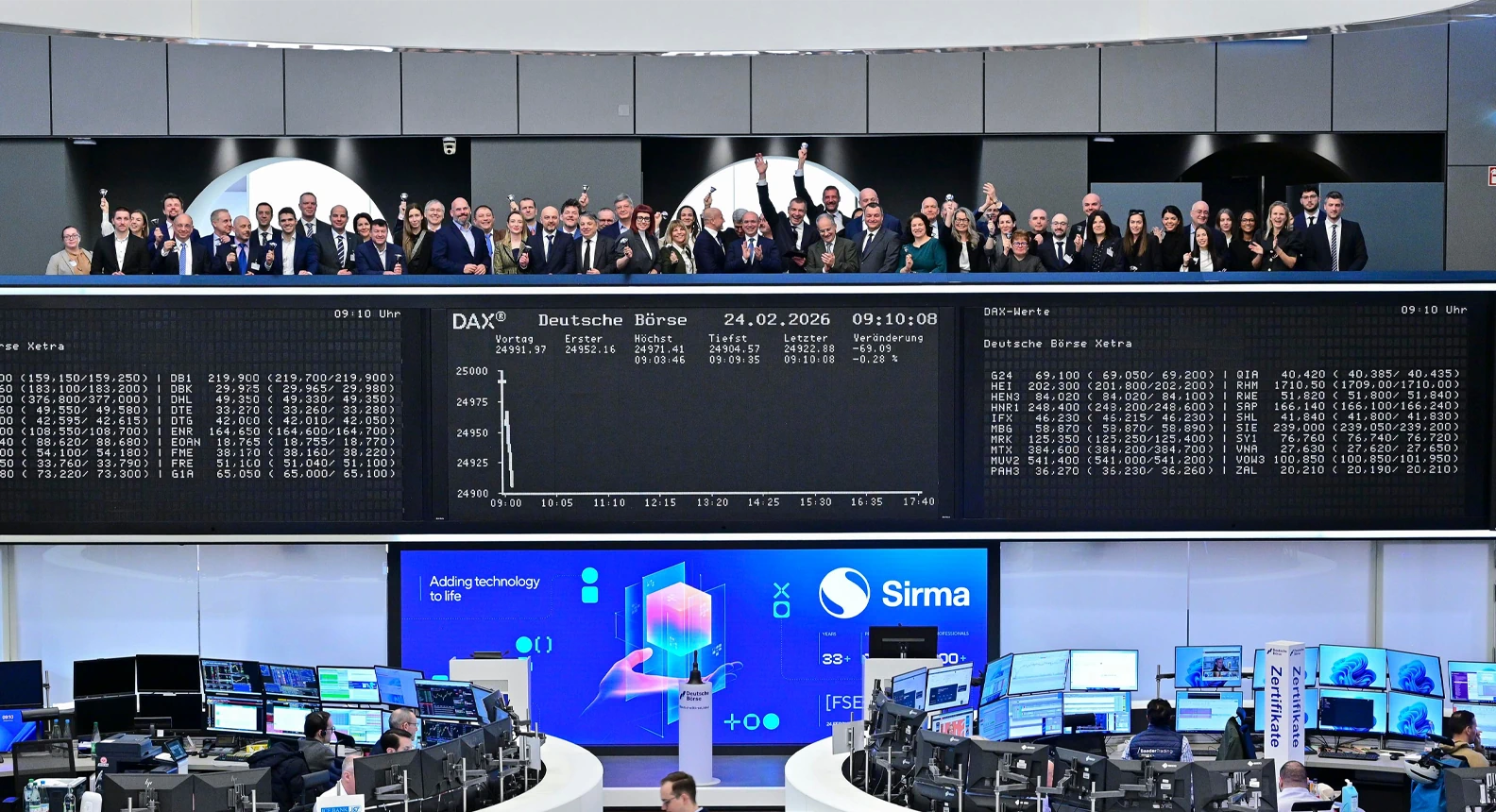We are pleased to present an interview with our esteemed colleague, Stanislav Tanushev, Director of Investor Relations and Sustainability at Sirma Group Holding AD. He discusses Voluntary Sustainability Reporting and the ESG strategy that Sirma has implemented._
Mr. Tanushev, what motivated Sirma Group Holding to voluntarily prepare a sustainability report?
Voluntary sustainability reporting is not new for Sirma. Two years ago, we published a Non-Financial Statement in line with the then-applicable Non-Financial Reporting Directive (NFRD), also on a voluntary basis.
Our approach is guided by a clear strategic rationale. Sustainability issues are deeply integrated into our business operations, financial planning, and long-term strategy. These matters are not peripheral; they are central to our success. For instance, our commitment to being a “preferred employer” directly impacts our ability to attract, develop, and retain top-tier professionals. Investing in human capital is essential to maintaining our competitiveness.
It is entirely reasonable for our shareholders and stakeholders to be informed about these strategic commitments, regardless of regulatory mandates. The transition from the NFRD to the Corporate Sustainability Reporting Directive (CSRD) and the European Sustainability Reporting Standards (ESRS) has allowed us to structure our disclosures more effectively. By publishing our reports ahead of mandatory deadlines, we gain valuable time to refine internal processes and improve data quality.

Do ESG reports bring direct benefits to your business?
The most significant impact stems from ESG practices themselves, rather than just the reporting. By managing energy consumption, enhancing employee motivation, and ensuring shareholder satisfaction, we achieve tangible outcomes through our ESG strategy.
However, ESG reporting is an essential tool for effective communication with investors. It provides transparency, explains the reasoning behind specific expenditures, outlines risk exposures, and highlights the opportunities we are actively pursuing. This reporting enables stakeholders to grasp the broader context of our decisions and our long-term commitments.
What are the key steps in preparing a sustainability report?
The CSRD and its standards offer a comprehensive framework, but there are three foundational steps that are indispensable to the process:
Materiality Assessment The first step is to identify which sustainability topics are materially relevant to Sirma. EFRAG has outlined a broad range of topics applicable to all sectors, and each company must determine which ones are relevant to its operations. This is followed by a double materiality analysis, which evaluates both the impact of these topics on our business and our business’s impact on them. For Sirma, we have identified seven key material topics.
Stakeholder Identification ESG activities are not fully centralized, so stakeholder mapping is essential. This ensures meaningful engagement in both ESG initiatives and reporting. Through this process, we have identified eleven stakeholder groups relevant to Sirma.
Data Source and Accountability Mapping It is essential to identify the sources of ESG-related data, assign responsibilities for maintaining that data, and verify the supporting documentation. This process is crucial for ensuring the integrity of the Sustainability Report and for the ongoing evaluation of ESG performance. After publishing three Non-Financial Statements and one comprehensive Sustainability Report, we now have three established data points that enable us to monitor trends and assess the effectiveness of our ESG initiatives.
Final thoughts
Sustainability is not just about compliance; it is a strategic necessity. Reporting is an important component of our journey, but the real value comes from the practices we integrate throughout our organization. Our goal is to ensure that ESG (Environmental, Social, and Governance) principles are not only documented but also actively implemented across Sirma.
About Oxygen
Oxygen is an initiative by the Bulgarian Stock Exchange and Financial Market Services that aims to facilitate efficient, transparent reporting of sustainable practices by Bulgarian companies. By providing a comprehensive platform for businesses to disclose their environmental, social, and governance (ESG) performance, Oxygen aims to help companies become more responsible and accountable in their operations.


